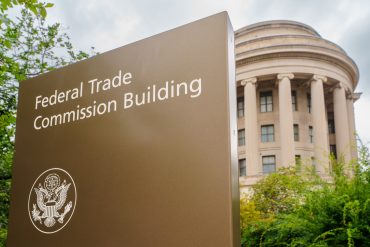
- Consumer Privacy
- Encryption
- Privacy & Regulation
FTC Warns Tech Giants Against Foreign Encryption Backdoors
6 minute read

Federal Trade Commission demands tech companies protect consumer encryption against mounting pressure from foreign governments
Key Takeaways
- FTC warns 13 major tech companies including Apple, Google, and Microsoft to resist foreign government demands for encryption backdoors, citing threats to American privacy and security.
- UK abandons Apple surveillance demand after the iPhone maker resisted providing backdoor access to encrypted iCloud data, signaling successful pushback against anti-encryption policies.
- Section 5 enforcement threatened as FTC Chairman Ferguson warns companies that weakening encryption while advertising secure communications could violate federal consumer protection laws.
Introduction
The Federal Trade Commission takes an unprecedented stand against foreign government pressure on American tech companies, demanding they resist requests to weaken encryption protections. FTC Chairman Andrew Ferguson sent formal letters to 13 major technology firms, including Apple, Google, Amazon, and Microsoft, warning them against compromising user security to satisfy foreign regulatory demands.
The intervention comes as international governments increasingly pressure tech companies to provide backdoor access to encrypted data. Ferguson’s letters emphasize that companies maintain their responsibility to protect American consumers’ privacy and security, even when facing compliance pressures from foreign authorities.
Key Developments
Ferguson dispatched the warning letters in late August, targeting companies that operate critical digital infrastructure and communication platforms. The recipients include Akamai, Alphabet, Amazon, Apple, Cloudflare, Discord, GoDaddy, Meta, Microsoft, Signal, Snap, Slack, and X.
The letters specifically cite the European Union’s Digital Services Act and the United Kingdom’s Online Safety Act as examples of foreign legislation that could pressure companies to compromise encryption. Ferguson pointed to the UK’s recent demand for Apple to provide backdoor access to iCloud data as a concrete example of the threats American companies face.
Apple’s resistance to the UK surveillance demand proved successful, with the company pulling its Advanced Data Protection feature from the UK market and challenging the order in court. Director of National Intelligence Tulsi Gabbard recently announced that the UK agreed to withdraw its mandate following negotiations with US officials.

Market Impact
The cybersecurity sector responds positively to the FTC’s supportive stance on encryption, with industry analysts viewing the intervention as validation of strong security practices. Companies that have invested heavily in end-to-end encryption and privacy features see their strategies reinforced by federal backing.
Tech stocks show mixed reactions as investors weigh the benefits of regulatory support against potential complications in international markets. Firms with significant European operations face particular scrutiny from analysts concerned about compliance costs and market access restrictions.
The semiconductor industry experiences continued growth driven by demand for AI chips and secure computing infrastructure, with the FTC’s position supporting investment in advanced security technologies. Companies positioned as security-first providers gain competitive advantages in enterprise markets.
Strategic Insights
The FTC’s intervention signals a fundamental shift in how American regulators approach the intersection of national security, consumer protection, and international business operations. Companies must now balance foreign market access against domestic regulatory expectations and consumer trust.
Ferguson’s warnings about Section 5 of the Federal Trade Commission Act create new enforcement risks for companies that advertise secure communications while secretly weakening encryption. This regulatory framework transforms privacy and security from optional features into legal obligations.
The timing coincides with escalating global tensions over data sovereignty and digital rights, positioning American tech companies at the center of geopolitical conflicts. Firms that successfully resist foreign pressure while maintaining market access demonstrate strategic value to both investors and policymakers.
Expert Opinions and Data
Ferguson emphasizes the stakes in his correspondence, stating that “foreign governments present emerging and ongoing threats to the free exchange of ideas.” He warns that anti-encryption policies “might be causing companies to weaken data security measures and other technological means for Americans to vindicate their right to anonymous and private speech.”
The FTC Chairman specifically addresses consumer deception concerns, noting that “if a company promises consumers that it encrypts or otherwise keeps secure online communications but adopts weaker security due to the actions of a foreign government, such conduct may deceive consumers who rightfully expect effective security.” This framework establishes clear legal liability for companies that compromise on advertised security features.
Industry data supports the FTC’s position, with global cybercrime costs projected to reach $10.5 trillion in 2025. SecurityWeek reports that privacy advocates and cybersecurity experts consistently warn that encryption backdoors designed for law enforcement can be exploited by malicious actors.
The FTC’s enforcement history demonstrates serious consequences for companies that fail to protect consumer data, with Ferguson noting that “the FTC has brought dozens of cases over the past two decades against companies that have failed to keep their promises to consumers to deploy reasonable safeguards.”
Conclusion
The Federal Trade Commission’s directive creates new parameters for how American tech companies navigate international regulatory pressures while maintaining domestic compliance obligations. Companies now face explicit federal expectations to prioritize user security over foreign government demands for access to encrypted data.
The successful resolution of the UK-Apple dispute demonstrates that coordinated resistance to anti-encryption policies can achieve positive outcomes. However, ongoing regulatory fragmentation across international markets continues to challenge tech companies seeking global expansion while maintaining security standards.
Ferguson’s letters establish encryption as a non-negotiable element of consumer protection under federal law, transforming privacy features from competitive advantages into legal requirements that carry enforcement consequences.







